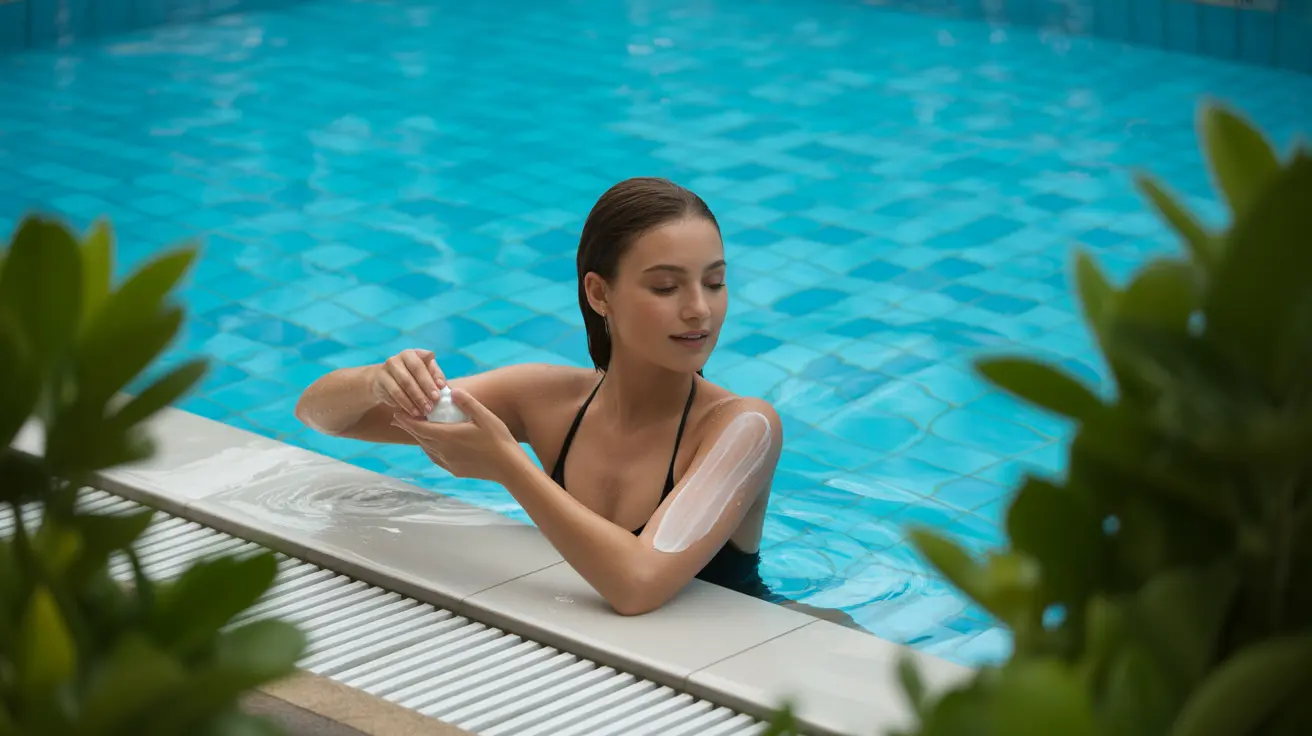For people living with eczema, the question of whether swimming in chlorinated pools will help or harm their condition is a common concern. Understanding the relationship between chlorine and eczema is crucial for making informed decisions about pool activities and maintaining healthy skin.
While chlorine is essential for keeping pools clean and safe from harmful bacteria, its effects on eczema-prone skin can vary significantly from person to person. Let's explore the complex relationship between chlorine exposure and eczema management.
How Chlorine Affects Eczema-Prone Skin
Chlorine's impact on eczema can be both beneficial and detrimental, depending on various factors. The chemical's antimicrobial properties can help reduce harmful bacteria on the skin, potentially decreasing infection risk. However, chlorine can also strip away the skin's natural oils, leading to dryness and irritation.
Potential Benefits of Chlorinated Water
Some individuals with eczema may experience temporary relief when swimming in chlorinated pools. The antiseptic properties of chlorine can:
- Help reduce bacterial colonization on the skin
- Temporarily alleviate itching in some cases
- Provide a cooling effect that can soothe inflammation
Possible Negative Effects
For others, chlorine exposure might trigger or worsen eczema symptoms through:
- Disruption of the skin's natural moisture barrier
- Increased skin sensitivity and irritation
- Chemical reactions that can cause dryness and flaking
Protective Measures for Swimming with Eczema
Taking proper precautions before, during, and after swimming can help minimize potential negative effects on eczema-prone skin:
Before Swimming
Prepare your skin by:
- Applying a thick moisturizer or barrier cream
- Using appropriate waterproof sunscreen
- Ensuring the skin is well-hydrated
After Swimming
Post-swim care is crucial:
- Rinse thoroughly with fresh water immediately after swimming
- Apply moisturizer while skin is still damp
- Change into clean, dry clothes promptly
When to Avoid Chlorinated Pools
There are certain situations when individuals with eczema should consider avoiding chlorinated pools:
- During active flare-ups
- When skin is broken or infected
- If previous pool exposure has consistently triggered reactions
- When chlorine levels are particularly high
Frequently Asked Questions
Is chlorine good or bad for eczema-prone skin?
The effect of chlorine on eczema varies by individual. While some people may experience temporary relief due to its antimicrobial properties, others might find it triggers flare-ups. The key is monitoring your skin's response and taking appropriate protective measures.
How can swimming in a chlorinated pool affect eczema flare-ups?
Chlorinated pool water can affect eczema in multiple ways. It may help reduce bacteria on the skin, but it can also strip natural oils, leading to dryness and irritation. Some people might experience immediate reactions, while others may notice effects hours after exposure.
What steps can I take to protect my eczema when swimming in a pool?
Apply a barrier cream or thick moisturizer before swimming, shower immediately after pool use, and reapply moisturizer while skin is still damp. Wearing a wetsuit or rash guard can provide additional protection.
Can chlorine in pool water help reduce itching and inflammation caused by eczema?
Some people report temporary relief from itching and inflammation when swimming in chlorinated water. However, this effect varies greatly among individuals and may be short-lived.
When should someone with eczema avoid swimming in chlorinated pools?
Avoid swimming during active flare-ups, when you have open wounds or infected skin, or if you've noticed that pool exposure consistently worsens your symptoms. Always consult with your healthcare provider for personalized advice.




